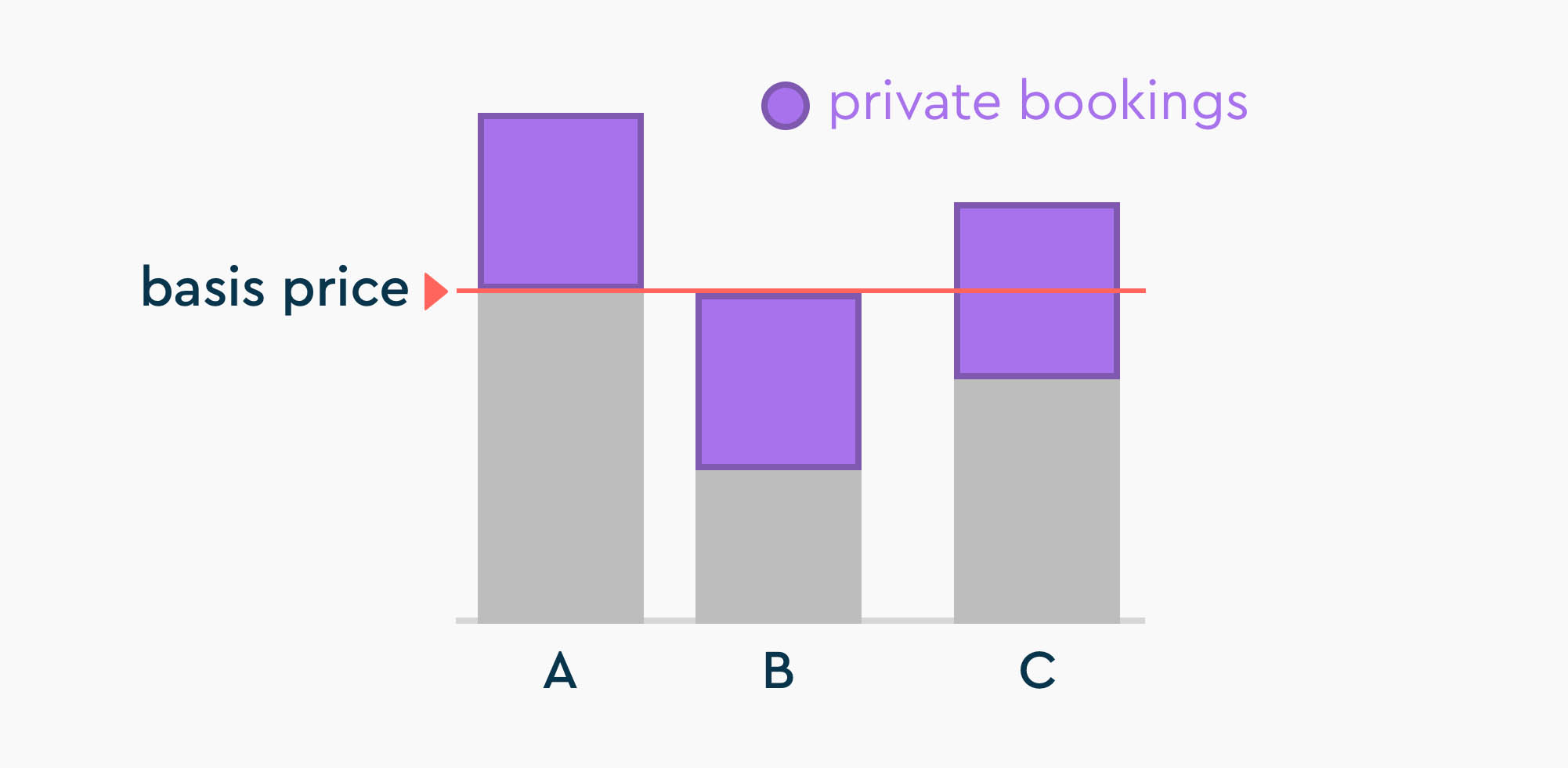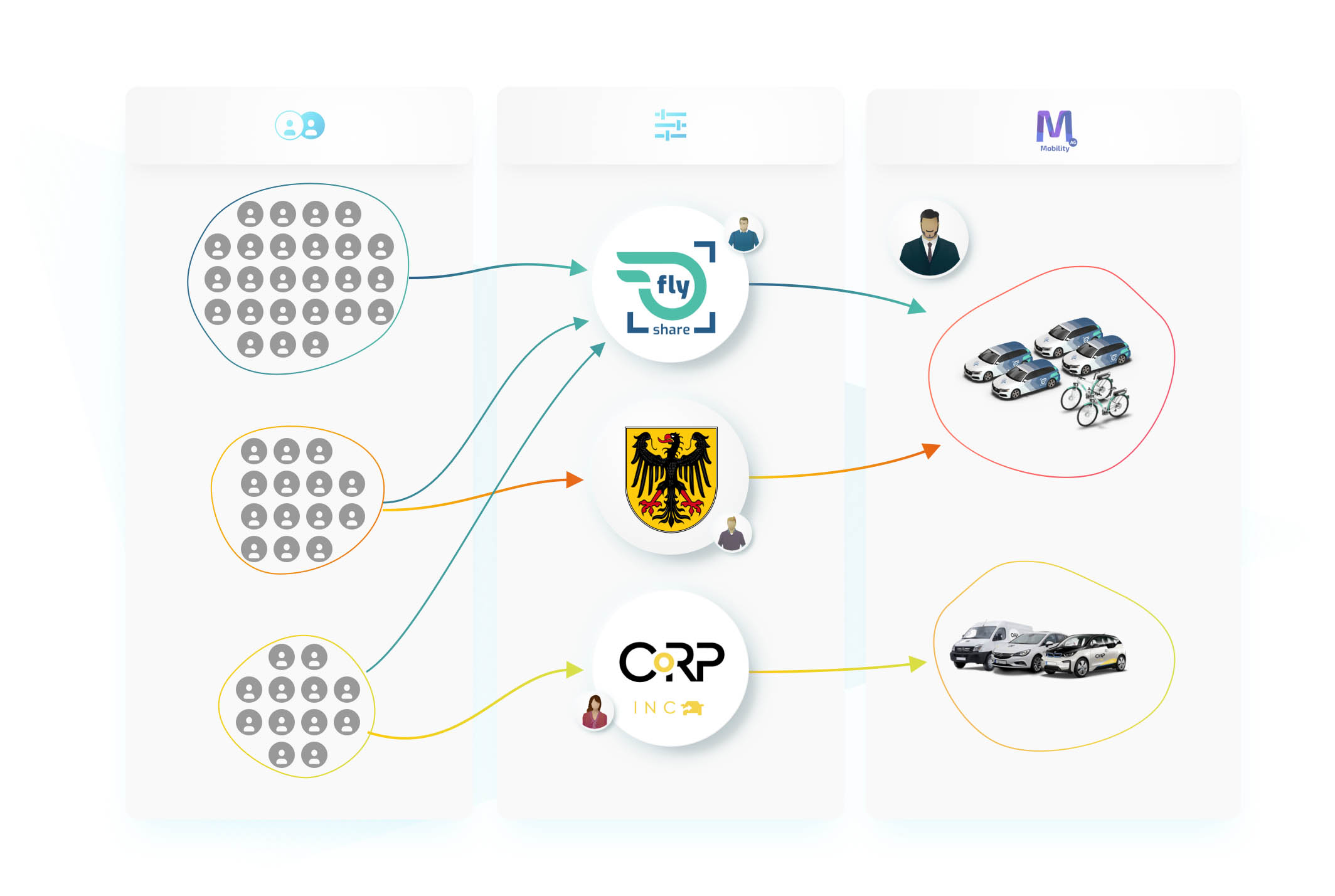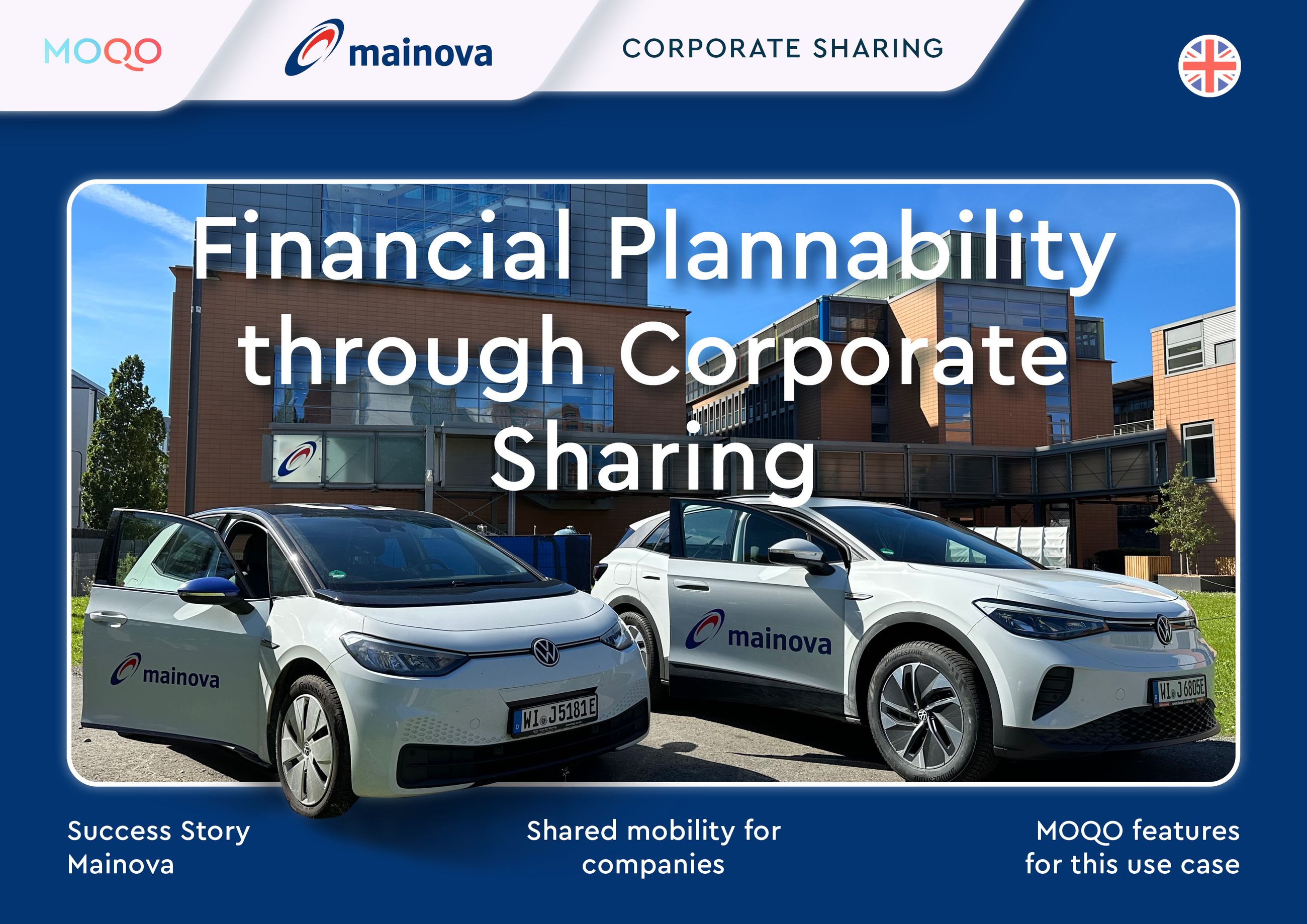
7 min read • December 17, 2024
Would you like more financial predictability? The season, weather and economic situation often influence the usage behavior of drivers. You can make yourself less dependent on this by achieving secure monthly income through fixed framework agreements with organizations. Find out how the corporate sharing business model works - it may be a suitable concept for you too.
Education
Corporate sharing is a business-to-business (B2B) mobility model in which sharing providers enter into framework agreements with companies to offer a fleet of vehicles exclusively for employee use in exchange for a predictable, fixed monthly fee. This approach delivers more financial stability than typical seasonal or variable demand models, while also reducing fraud and damage due to the limited and more responsible user base. Companies benefit by avoiding the complexities of managing their own fleet, achieving cost efficiencies through digital booking systems, and enhancing employee perks or employer branding.
Corporate sharing is a B2B business. This means that your direct customers are not the drivers, but organizations or companies with a need for an internal mobility service.
You make vehicles exclusively available to them and take on defined services. In return, you receive a fixed fee.
For companies, this model represents an alternative to the traditional company car concept. This means that individual employees are not assigned their own company car, but all employees have flexible access to the sharing vehicle fleet.
A major advantage of this business model: As a corporate sharing provider, you receive a fixed, usually monthly, fee for your service from the framework agreement partner. You therefore know the minimum turnover you can expect before the start of the month.
In addition to the fixed fee, you can even generate additional income through private use of the vehicles by employees - more on this in the section "How does corporate sharing work?".
Another advantage that many corporate sharing providers report: Fewer cases of fraud and damage occur. This is obvious, as the user group is limited and not just anyone can register for the service. This reduces the risk of identity fraud or willful damage and theft.
The personal relationship between the drivers (= employees) and the company also often leads to (even) more careful handling of the vehicles.
Damage management: Best practices →

In principle, corporate sharing works like this: You make the desired number of shared vehicles exclusively available to a company and take on agreed services. In return, you receive a corresponding fee. In this case, the drivers are members of the company. They book the vehicles via a digital sharing system provided by you, such as the MOQO platform.
Typical services offered by corporate sharing providers
How to keep your sharing vehicles ready for use →
The basis of a corporate sharing offer is a framework agreement that you conclude with the company and in which you specify all the essential details.
For example, it is important to know whether the company's employees are allowed to use the vehicles exclusively for business purposes or also for private use. The company decides whether the drivers should bear the costs themselves or whether it will also cover them.
In the latter case, you take this into account when calculating the monthly fee. This generally depends on the scope of services offered, which you negotiate individually with the customer.

If the employees cover the costs of private travel themselves, you regulate how this additional income is handled in the framework agreement.
Option A: The revenue goes to you as the sharing provider.
Option B: The revenue goes to the company or is offset against the monthly fee.
Option C: You divide the income between you and the company in a ratio to be determined.
Weigh up what is important to you: Do you primarily want to increase your revenue or make it attractive for the company to encourage employees to use the vehicles?
Case Study: How Mainova generates predictable income with corporate sharing offers →
Make sure that you build up a network of service partners in your customer's area (if this does not already exist). In most cases, you will also need a contact person at the local company who can check on the vehicle if necessary or hand over keys to workshop partners. This is particularly important if the company is based at a different location to you.
While some providers operate exclusively corporate sharing offers, others offer this as an extension to public sharing. This decision is always individual and depends on objectives, strategy and capacities.

The question you need to answer for yourself before approaching potential business customers is this: Why should a company cover its mobility needs with your service instead of operating its own fleet?
Good arguments to convince companies of the benefits of corporate sharing
Which role carsharing plays in terms of climate change →
Be aware of the added value of your corporate sharing offer and communicate this.
Ways to reach corporate customers

In order to be able to offer organizations corporate sharing, you certainly need a sharing system that can map this use case.
The MOQO platform basically supports you with the following four functions:
Closed vs. public offers
When creating a sharing offer, you choose whether it is a closed or public offer. For companies that only want to rent sharing vehicles to their employees, select a closed offer.
Booking settings
When making a specific booking, drivers select whether they are making the booking for business or private purposes. For private bookings, you can enter the corresponding usage rates and the journey will be billed directly via the platform.
You can also set the time periods in which private use is even possible. This is relevant if, for example, booking should only be possible after work or at weekends - i.e. when they are not needed for business purposes.
Optional: Digital driver's logbook
If required, the platform automatically generates a tax office-compliant digital logbook of all business-related journeys.
API connection of external services
Other external services can be connected to the platform via APIs to support you in fleet management, for example.

With the contingent feature, companies can provide employees with a budget for (private) trips - for example as a reward for special achievements or as a general employee benefit.

The discount code manager allows you to create individual discount codes that companies can issue to employees on special occasions, for example.

The Scheduler helps you with fleet management: You can maintain an overview, view and control bookings and planned maintenance centrally and coordinate tasks. It is also possible to create, change or end bookings via the Scheduler. This is particularly helpful for companies that want to manage employee bookings manually instead of via the app.

As corporate sharing is a very specific use case, it is not unlikely that specific questions will arise from corporate customers or drivers. It is therefore advisable to integrate your own customer support using the Support Bundle feature.

More and more companies are deciding against providing selected employees with a company car. This development is making way for corporate sharing: a more contemporary, sustainable and often cheaper form of company mobility.
As a sharing provider, you have the know-how and the resources that companies need. This opens up a new target group for you and a new business model from which you also benefit: through fixed monthly sales and less risk of fraud.

Learn how Mainova sets up their corporate carsharing services, which advantages come with them compared to public sharing offers and which features of the MOQO platform support this use case.